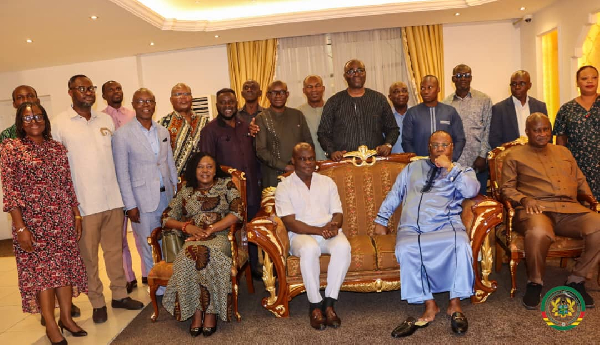In every corner of Ghana from bustling cities to the quietest hamlets the voice of religion resounds. It is in the mosque at dawn, the chapel at sunrise, the cathedral bells by noon, and the evening incense of shrines. For millions, faith is not merely a spiritual practice. It is a worldview, a way of life, and a moral compass.
As the Ministry of Local Government, Chieftaincy and Religious Affairs (MLGCRA) boldly reintroduces the National Sanitation Day (NSD), it recognizes one of the greatest allies in this national effort: religious leadership. The men and women of the pulpit, the minaret, the altar, and the temple do not only shape spiritual destinies; they shape social behaviour.
The Conscience of the Nation
Religious leaders have long been seen as custodians of conscience. In their words lie guidance, in their influence lies moral clarity, and in their followership lies unshakable trust. When a pastor speaks, thousands listen. When an imam gives counsel, communities align. When a religious leader calls for action, the ripple reaches every home, every street, every life.
This is why the Ministry’s engagement with bodies such as the Christian Council of Ghana, the Ghana Pentecostal and Charismatic Council, the National Clergy Association of Ghana, the Presbyterian Church of Ghana, the Seventh-day Adventist Church, and Islamic leadership across the country is not just consultation, it is co-leadership.
Religion as a Catalyst for Behaviour Change
Sanitation, at its core, is a behaviour, and behaviour is shaped by belief.
Religious teachings on cleanliness, discipline, stewardship, and communal responsibility are consistent across doctrines. The Quran speaks of cleanliness as part of faith. The Bible proclaims that “clean hands and a pure heart” are the marks of righteousness. Traditional African religion sees physical cleanliness as a path to spiritual access.
By mobilizing religious leaders in the reintroduction of the NSD, the Ministry is activating a deep well of moral authority that goes beyond compliance, it taps into conviction.
Pulpits as Platforms for Public Transformation
Religious platforms reach more people in Ghana weekly than any media platform or public institution. Every Friday, Saturday, and Sunday; across prayer camps, mosques, churches, and fellowships, sermons, declarations, and exhortations shape minds and habits.
The Ministry’s goal is to mainstream sanitation messages into the rhythm of worship, integrating civic duty with spiritual responsibility. Sermons will not only save souls but call people to sweep streets. Prayers will not only seek divine favour but advocate for environmental responsibility. Religious leaders will not just preach about heaven but teach how to protect the earth entrusted to us.
The Global Influence of Ghanaian Faith
Ghana is not just a beacon of faith locally; it is a spiritual hub on the global stage. Our religious leaders sit at world tables, lead international movements, and command global audiences. From evangelical conventions in the U.S. to interfaith dialogues at the United Nations, Ghanaian voices of faith are shaping discourses on peace, climate, gender, and now sanitation.
As the world watches Ghana’s NSD initiative, it will see a model where religion does not retreat from civic responsibility, it leads it. This is the kind of legacy that positions Ghana as not just the Black Star of Africa, but the moral light of development innovation.
Faith and Policy: A Sacred Partnership
The Ministry’s mandate, covering local governance, religious affairs, and chieftaincy is not just administrative. It is transformative by design. In mobilizing faith leaders for NSD, the Ministry is enshrining a policy-prayer partnership, where spiritual leaders are not just stakeholders but state-builders.
Already, these collaborations have begun bearing fruit. Religious organizations have pledged platforms, pledged people, and pledged prayers. Their involvement is turning National Sanitation Day into a faith-fuelled movement, with environmental stewardship elevated to divine responsibility.
The Call to All
This reintroduction of the National Sanitation Day is not a Ministry initiative. It is a national call to conscience. And in the voice of the shepherd, the muezzin, the bishop, the prophetess, and the traditional priest, we find Ghana’s strongest echo of change.
Let every pulpit declare it. Let every congregation act on it. Let every faith community rise to it. A clean Ghana is not just a vision. It is a spiritual mission.
Because a clean environment is not only our responsibility. It is our faith in action.
(The writer is a Public Relations Officer with the Ministry of Local Government. Chieftaincy and Religious Affairs and a Staff of the Information Services Department (ISD)
darling.cann@mlgrd.gov.gh
darling.cann@isd.gov.gh)


